Speaker Bios and Presentation Descriptions
Welcome Address
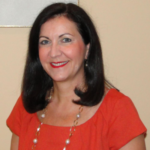
Ms. Jeannette Stewart is a strategic leader and has worked with mainstream brands helping them achieve global growth, business revitalization and transformation. Currently she is leading international launches for Nest cameras at Google. She founded Translation Commons, an online volunteer-based public charity aiming to offer and share tools and resources and to facilitate community initiatives. The Language Digitization Initiative creates resources specifically for Indigenous communities to enable their languages online. She is the former CEO of CommuniCare, a life-science translation company with offices in London, Paris, Athens, Budapest and Los Angeles. Jeannette has been involved in high-profile projects such as the Genome Project and prototyping the online Unified Submission Process for the European Medicine Agency. Jeannette has founded, served on the board of directors, moderated, and volunteered in various educational and health charities.
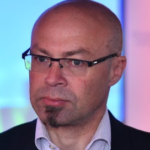 Mr. Jaco du Toit is Chief of the Universal Access to Information Section at the Communication and Information Sector of UNESCO. He previously held the position of Programme Specialist, providing support to the UNESCO Information for All Programme and serving as regional adviser for UNESCO’s Communication and Information Sector in Eastern Africa, Southern Africa and North Africa. He has an academic background in information sciences, political sciences, information for development, communication and telecommunication and media and international relations. He has worked on projects related to knowledge society development, Right to Information laws, disabilities and Information and Communication Technologies and Information and Communication Technologies in Education.
Mr. Jaco du Toit is Chief of the Universal Access to Information Section at the Communication and Information Sector of UNESCO. He previously held the position of Programme Specialist, providing support to the UNESCO Information for All Programme and serving as regional adviser for UNESCO’s Communication and Information Sector in Eastern Africa, Southern Africa and North Africa. He has an academic background in information sciences, political sciences, information for development, communication and telecommunication and media and international relations. He has worked on projects related to knowledge society development, Right to Information laws, disabilities and Information and Communication Technologies and Information and Communication Technologies in Education.
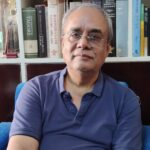 Dr. Udaya Narayana Singh is a Chair-Professor in Linguistics, Culture Studies and Translation and Dean (Faculty of Arts) in Amity University Haryana. He was the Director of CIIL, Mysore, and Pro-Vice-Chancellor of Visva-Bharati, Santiniketan. Dr. Singh had set up the National Translation Mission and taught at the Universities of Hyderabad, Delhi, South Gujarat, and MSU-Baroda. With seven collections of poems in Maithili and Bangla, six books of essays, and twelve plays, he translated many books and published 250 research papers and created 545 documentaries on the language, literature, and culture of Bangla, Tamil, Kannada, and Marathi. A poet-invitee at the Frankfurt Book Fair (2006), London Book Fair (2009), and Leader of Cultural Delegation of Writers to China (2007), Dr. Singh visited and lectured in Australia, Andorra, Bangladesh, Belgium, Caribbean Islands, France, Germany, Iceland, Italy, Nepal, Pakistan, Russia, Singapore, Spain, Sweden, Thailand, UK, and the USA, and received several grants. He received many honors, including the coveted Sahitya Akademi Award 2017 for poetry.
Dr. Udaya Narayana Singh is a Chair-Professor in Linguistics, Culture Studies and Translation and Dean (Faculty of Arts) in Amity University Haryana. He was the Director of CIIL, Mysore, and Pro-Vice-Chancellor of Visva-Bharati, Santiniketan. Dr. Singh had set up the National Translation Mission and taught at the Universities of Hyderabad, Delhi, South Gujarat, and MSU-Baroda. With seven collections of poems in Maithili and Bangla, six books of essays, and twelve plays, he translated many books and published 250 research papers and created 545 documentaries on the language, literature, and culture of Bangla, Tamil, Kannada, and Marathi. A poet-invitee at the Frankfurt Book Fair (2006), London Book Fair (2009), and Leader of Cultural Delegation of Writers to China (2007), Dr. Singh visited and lectured in Australia, Andorra, Bangladesh, Belgium, Caribbean Islands, France, Germany, Iceland, Italy, Nepal, Pakistan, Russia, Singapore, Spain, Sweden, Thailand, UK, and the USA, and received several grants. He received many honors, including the coveted Sahitya Akademi Award 2017 for poetry.
Setting the stage on the Power Dynamics in Translation
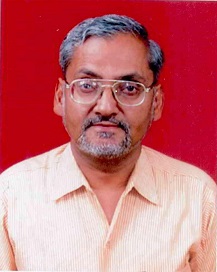
Dr. R. Siva Prasad is a retired professor of Anthropology at the University of Hyderabad, and currently an Honorary Professor in the Center for Digital Learning, Training and Resources (CDLTR) there. He has both teaching and research experience of more than 40 years, during which he guided research students in diverse areas. He is actively associated with UNESCO-IFAP programmes. He is a member of the Information Ethics Working Group (IEWG) of UNESCO-Information for All Programme (IFAP). His current areas of interest are AI ethics, different aspects of marginal and indigenous communities, including indigenous knowledge systems, languages, education, and conflict management.
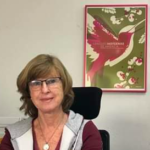 Dr. Elin Emilsson has been working in the fields of applied linguistics and discourse analysis and has developed language courses in and for indigenous communities of Mexico. Her colleague Nelson Martinez is a native speaker of the Zapotec language and an applied linguist working at the National Institute of Indigenous Languages. He has translated works in Spanish into Zapotec and vice-versa.
Dr. Elin Emilsson has been working in the fields of applied linguistics and discourse analysis and has developed language courses in and for indigenous communities of Mexico. Her colleague Nelson Martinez is a native speaker of the Zapotec language and an applied linguist working at the National Institute of Indigenous Languages. He has translated works in Spanish into Zapotec and vice-versa.
Dr. Wakoko Wanjala is a translator and indigenous language activist from Kenya.
Topic: Language for Health
In countries that use foreign languages the local language speakers have a problem being understood especially in the area of pain conceptualization. Dr. Wanjala feels that people should be facilitated to use their native languages during doctor patient consultation.
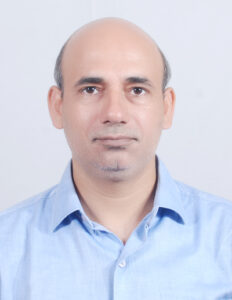
Dr. Tariq Khan is the Officer In Charge of National Translation Mission, Central Institute of Indian Languages. He is also serving as the editor of Translation Today journal and associate editor of John Benjamin’s Online Bibliography of Pragmatics. Dr. Tariq Khan has obtained MA, MPhil and PhD in Applied Linguistics.
Topic: Translation and Higher Education – some reflections on the Indian scenario
The announcement of the National Education Policy 2020 by the Government of India provided a fresh impetus to the efforts directed towards safeguarding linguistic plurality. The new policy also provides education in the learners’ mother tongues. This has created new necessities for translators and education givers, especially at the level of higher education. This presentation aims at analysing the prevailing situation, the challenges and the prospects of the implementation of the national education policy.
Case Studies from Indigenous Communities
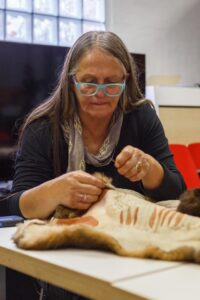
Dr. Vicki is a Keerray Wooroong Gunditjmara citizen and language revitalisation expert. She carries the legacy, from her father, to reinvigorate their Mother Tongue. Vicki is a Research Fellow at RMIT University in Melbourne, Australia. She is developing the grammar and teaching clans to enable fluent speaking of their Mother Tongue in lived every day settings
Topic: Cultural translation – cultural re-dreaming
Cultural re-dreaming will share thinking and experiences around translating Keerray Wooroong and Gunditjmara languages into a living cultural framework.
Mr. Maraz was born in ex Yugoslavia. He graduated at Manchester Polytecnic 1980. Mr.Maraz is designer and CEO at Krea Identity in Italy, Usa, Thailand and Shanghai. Active as an ethnologist and documentary filmmaker.
Topic: Dialect, trace of memory
With the shift of economic status social structure begins to disappear. Language and dialect are the first to suffer. Therefore a historical identity begins to vanish too. What is left is an urbanized uniformed way of communication where identity is no longer
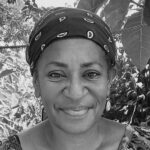
Ms.Julie Kondi, is a Papua New Guinean art researcher translating the indigenous Bebeli people language and traditional customs in the past ten years.Her work has been exhibited and published throughout Europe.She studied Social Sciences at the University of Papua New Guinea and works in themes of historical documentary recordings, traditional oral history and ethnography projects.
Topic: Recording the traditional Marmae Female Rites in Maemae Wok Kastom:Translation and Technology challenges
Like some indigenous societies in the Pacific the Bebeli people have sacred female only sacred rites of which the Maemae Wok Kastoms are a classical example.In recording and translation of these rites issues of sacred Spaces become prominent. Also when the acts are performed in performance poetics translation in narratives of the acts and interpretation of performance poetry poses great challenges as depicted in this short video film.
Technology and Translation
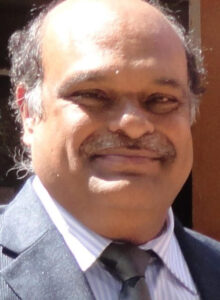 Dr. Rao was awarded Honorius Causa from Krasnoder State University, Russia and also Honorary Professor Medal from Kazan State University, Russia. His research areas of interest include Linguistics, Translation Studies, Foreign Language teaching, Digital Learning and Higher Education in India with special focus on Internationalization of Higher Education. He has more than 60 International and National Publications and edited ten books (eight International and two National). Dr. Rao is member of many International and National Committees and Editorial Boards of academic journals.
Dr. Rao was awarded Honorius Causa from Krasnoder State University, Russia and also Honorary Professor Medal from Kazan State University, Russia. His research areas of interest include Linguistics, Translation Studies, Foreign Language teaching, Digital Learning and Higher Education in India with special focus on Internationalization of Higher Education. He has more than 60 International and National Publications and edited ten books (eight International and two National). Dr. Rao is member of many International and National Committees and Editorial Boards of academic journals.
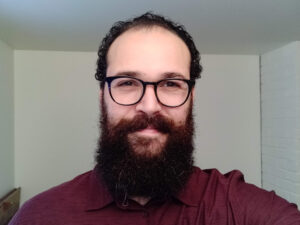
Mr. Wynne provides support, outreach, and training for Mukurtu CMS, and runs community workshops and training focused on digitization and digital curation workflows.
Topic: Language tools and translation in Mukurtu CMS
Mr. Wynne will provide an overview of the core language and translation tools present in Mukurtu CMS, and will discuss current development for updates and expansion of those tools.
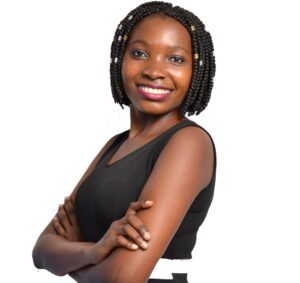 Ms. Josephine Adeti is the project lead at Loabowa, an organisation in Kenya running The Mbura Experiment that seeks to translate climate knowledge into local languages that people can understand and relate to. Through this project, Loabowa aims to create climate awareness that not only empowers communities to take local action, but also inspires them to lead their own resilience stories.
Ms. Josephine Adeti is the project lead at Loabowa, an organisation in Kenya running The Mbura Experiment that seeks to translate climate knowledge into local languages that people can understand and relate to. Through this project, Loabowa aims to create climate awareness that not only empowers communities to take local action, but also inspires them to lead their own resilience stories.
Topic: Translating Climate Knowledge into Local Languages
How many tribes in Africa have climate knowledge in their native languages? This presentation presents the Mbura Experiment, an initiative that aims to increase climate awareness in rural sub-Saharan communities by providing access to climate knowledge through natives in local languages. The presentation covers challenges faced by remote communities in accessing content in their language and what organizations can do to change this.
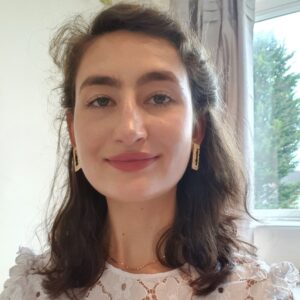 Ms. O’Mahony is a PhD researcher in the University of Limerick, Ireland. She is involved in an open-science initiative known as ‘Aya’ as language ambassador for the Irish language, a beautiful but sadly not widely spoken language. She is not only interested in the preservation of the Irish language and gathering data in Irish, but also the success of the Aya open-science project in all 101 languages as well as raising awareness about this project.
Ms. O’Mahony is a PhD researcher in the University of Limerick, Ireland. She is involved in an open-science initiative known as ‘Aya’ as language ambassador for the Irish language, a beautiful but sadly not widely spoken language. She is not only interested in the preservation of the Irish language and gathering data in Irish, but also the success of the Aya open-science project in all 101 languages as well as raising awareness about this project.
Topic: Generative Language Models Beyond English
Aya is an open science project that aims to collect a multilingual dataset in 101 languages and build a state of art multilingual generative language model that harnesses the collective wisdom and contributions of people from all over the world. More information about Aya is available here: https://sites.google.com/cohere.com/aya-en/about-aya
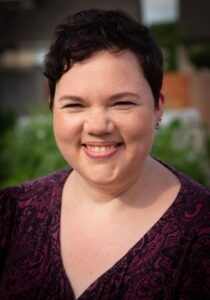 Dr. Tabea De Wille and Craig Cummings are volunteers at the Keyboards initiative at Translation Commons. The team together works on developing keyboards in collaboration with language communities all over the world.
Dr. Tabea De Wille and Craig Cummings are volunteers at the Keyboards initiative at Translation Commons. The team together works on developing keyboards in collaboration with language communities all over the world.
Topic: Climbing the Digitization Mountain Together
Keyboards are an important early step in the language digitization journey. However, many languages do not have a suitable keyboard that allows them to communicate with others, or store information digitally. The keyboards initiative at Translation Commons works on developing such keyboards, as well as keyboard development training.
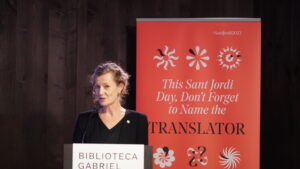
Ms. Rodriguez is President of the Fédération Internationale des Traducteurs (FIT). A linguist and translator in legal, human rights and technical fields, she has diverse experience in strategy, policy and promotion of the arts. Having held the office of Secretary General and Vice President in FIT over the last 8 years, she is known for her strong advocacy of multilingualism, multilateralism, and cultural and linguistic diversity and inclusion, with particular focus on indigenous language revitalisation, association development and community building. Ms. Rodriguez was a plenary speaker at FIT’s International Year of Indigenous Languages ITD event in 2019.
Closing Address
 Mr. Tex Texin is an industry thought leader specializing in software globalization services. Mr. Texin has contributed to several internationalization standards and open source software and has been an advisor to several globalization non-profits. He is an advisor to Translation Commons where he has been architecting their Language Digitization Initiative, bringing the languages of indigenous communities to digital systems.Mr. Tex Texin, and his consulting company XenCraft, help numerous companies create global products and guide companies in taking business to new regional markets. Mr. Texin is a popular speaker at conferences around the world. He is the owner/author of the popular, instructional I18nGuy.com site.
Mr. Tex Texin is an industry thought leader specializing in software globalization services. Mr. Texin has contributed to several internationalization standards and open source software and has been an advisor to several globalization non-profits. He is an advisor to Translation Commons where he has been architecting their Language Digitization Initiative, bringing the languages of indigenous communities to digital systems.Mr. Tex Texin, and his consulting company XenCraft, help numerous companies create global products and guide companies in taking business to new regional markets. Mr. Texin is a popular speaker at conferences around the world. He is the owner/author of the popular, instructional I18nGuy.com site.
